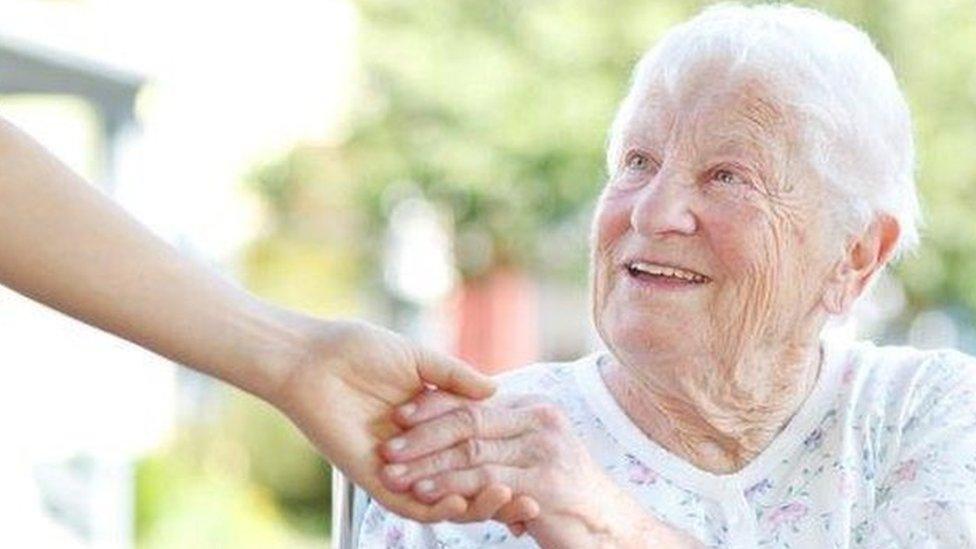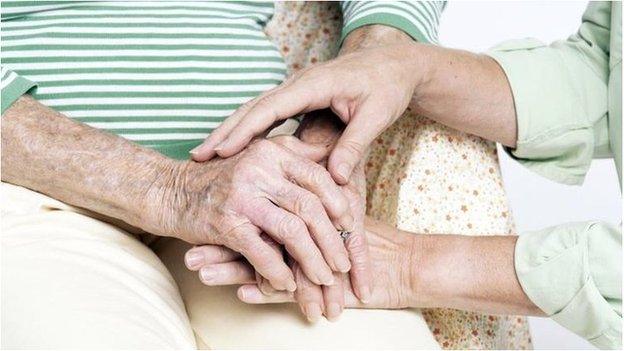Social care: Crisis talks with homes 'on brink'
- Published

Crisis talks are taking place later between care home owners and council leaders amid mounting concern a large number of providers are preparing to pull out of the market.
A report, external report last week warned 37,000 beds - nearly 10% - could go by 2020.
It blamed the fees paid by councils and pressure from the national living wage.
Charities will also be represented at the meeting with all sides calling for extra funding ahead of next week's spending review.
Martin Green, chief executive of Care England, said: "Faced with increasing costs and falling fee levels, many smaller care providers will go to the wall, jeopardising the care of thousands of vulnerable people."
He said the meeting taking place in London would discuss contingency planning for mass home closures and the collapse of many small providers.

The care system

Unlike the NHS, social care provided in an individual's home or in residential care is not free - only the poorest get help
The number of older and disabled people receiving council help fell by 28% between 2009-10 and 2013-14
Councils spent just under £14bn last year on services
The Local Government Association predicts if extra money is not put in there will be a shortfall of more than £2bn in care services by 2020 - and that is before the implications of the national living wage are taken into account
An estimated 1.5 million older people with care needs rely on family and friends for help
One in 10 older people faces bills in excess of £100,000 over their lifetime for care
Find out more

'Financial failure'
Groups such as Age UK and Carers UK will be there alongside and some of the big care companies and council representatives.
Unlike the NHS social care is not free. The sector is a mix of over 65s who pay for themselves and those who get local authority help towards the costs.
There are more than 400,000 elderly care home residents in England with more than half council-funded in part.
But the fees paid in those situations are sometimes as much as half what someone paying their own way has to find.
Last week's report by ResPublica - a partnership between industry and unions - warned self-funders were effectively subsidising the local authority side of the market and some of the smaller providers could no longer cope.
Charity boss says he stayed in care home to see what it was like
The UK Homecare Association, which represents agencies that provide help in the home with tasks such as washing and dressing, has also been vocal about the fees councils pay for those services.
Councillor Izzi Seccombe, of the Local Government Association, an organisation which will be represented at the talks, acknowledged prices had been squeezed and further budget cuts could see the situation worsen.
"There is already evidence that lack of funding is leading to providers pulling out of the publicly funded care market and shifting their attention towards people who are able to fully fund their own care," she said.
A Department of Health spokeswoman said future spending on care would be decided by the spending review.
But she added: "No-one will be left without care if a home close. We have put in place new laws which mean councils have a duty to keep their local care market health and support anyone whose care service has stopped because of financial failure."
- Published7 October 2015

- Published17 July 2015

- Published28 July 2015
